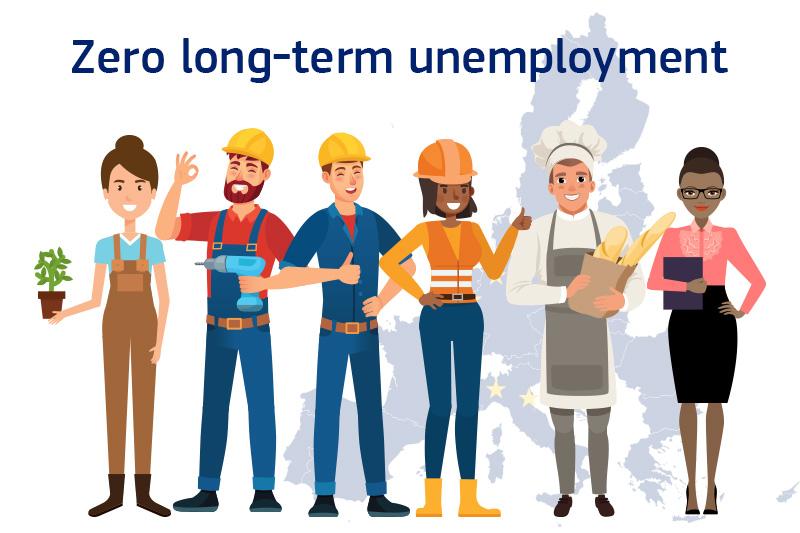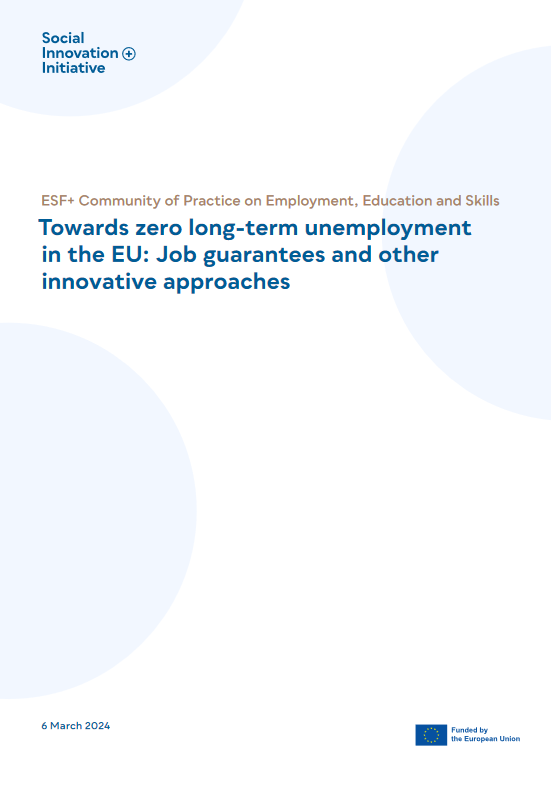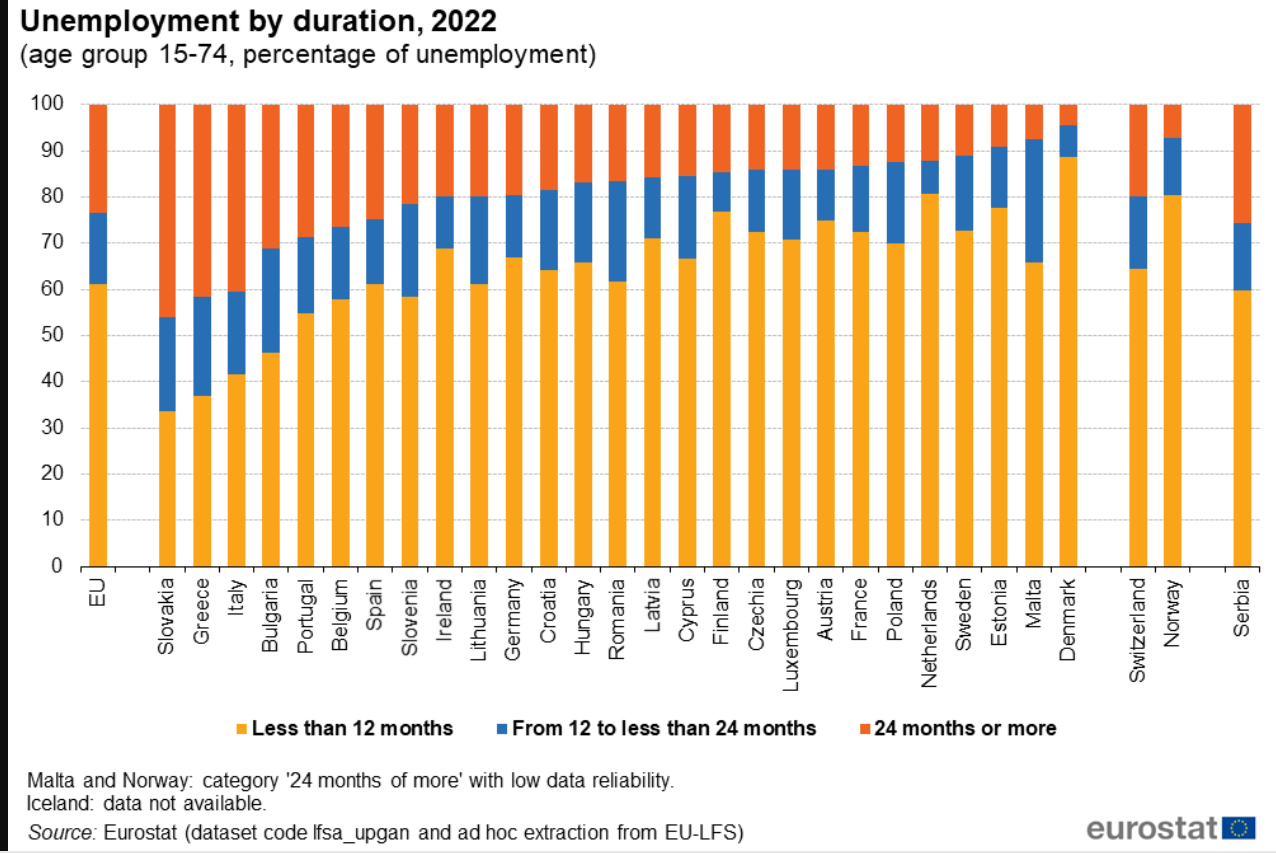Innovative approaches tackling long-term unemployment across Europe
With long-term unemployment remaining an issue in many European countries, there is growing interest in finding new ways of tackling it. Innovative initiatives have been developed across Europe and promising examples are ongoing that can be scaled up to tackle long-term unemployment, according to a new report. Social economy organisations can play a key role in such initiatives.


- General publications
- 6 March 2024
Long-term unemployment continues to be an issue in many European countries, but there is growing interest in finding new solutions. The report ‘Towards zero long-term unemployment in the EU’ highlights promising initiatives across Europe that could be expanded to tackle long-term unemployment.
Long-term unemployment: a persistent issue

Though long-term unemployment in the EU has lowered since its peak in 2014, it remains high in many countries, with 6 million people in 2021 having been out of work for more than a year, with over 2,5 million young people not in employment for a significant time. Research shows that the longer a person stays unemployed, the more difficult it is for them to find a job.
Where traditional measures have struggled to activate long-term unemployed in the past, the innovative approaches presented in the report aim to help people enter the labour market by creating jobs that reflect both their aspirations and the local needs. The social economy is also an area which shows great promise in finding new ways of tackling this issue.
Promising examples
The Marienthal Job Guarantee Pilot in Austria is offering a universal and unconditional guarantee of a fair-paid job to all people unemployed for longer than twelve months.
In France, Zero Long-Term Unemployment Territories work by engaging people who have been without jobs for over a year, assessing their skills and aspirations, matching them with community needs, and creating a job that addresses these needs. It is redirecting the savings on cash benefits otherwise paid to the unemployed people towards creating these jobs.
A similar approach has also been introduced in Belgium, with 17 zero long-term unemployment territories to be launched in Wallonia, with support from the European Social Fund Plus.
The Solidary Basic Income initiative in Germany aims to tackle early- to mid-stage long-term unemployment by offering 1 000 job opportunities to unemployed people in the State of Berlin for up to five years.
The Basisbaan programme in the Netherlands aims to reduce reliance on welfare benefits while fostering a sense of purpose and community. People are employed by the local municipality to do tasks that improve the quality of life in the neighbourhood and can’t be funded by the community or provided on a market basis.
Success factors and potential for growth
The main idea behind these initiatives is that long-term unemployment needs to be addressed on the local or regional level, by directly offering people jobs on a voluntary basis, with fair pay and flexible working hours. This helps to build financial independence, professional growth, and better self-confidence for unemployed people.
Working with local non-governmental organisations also helps to engage people who are difficult to reach by public employment services. This is particularly important in countries where many of the long-term unemployed are not registered with public employment services.
The report concludes that these experiments represent a promising policy tool for curbing long-term unemployment and enhancing the well-being of the unemployed. It recommends supporting innovation that has a positive impact on both the economic and the social well-being of communities, rather than focusing only on transitioning to the open labour market.
Unlocking opportunities
The authors of the report will present their fundings, highlighting lessons learnt as well as insights for transfer and scaling, during a webinar on 18 March 2024 (registration by 14/03) . This could be of interest to policymakers at local level, social innovation practitioners, public employment service staff and other stakeholders working on long-term unemployment.
The report sets the stage for an upcoming call for proposals under the ESF+ Social Innovation+ initiative, with a budget of EUR 23 million. It will provide funding to further develop these concepts, aiming towards zero-long term unemployment in the EU.
Community of Practice: Employment, Education and Skills | European Social Fund Plus (europa.eu)

